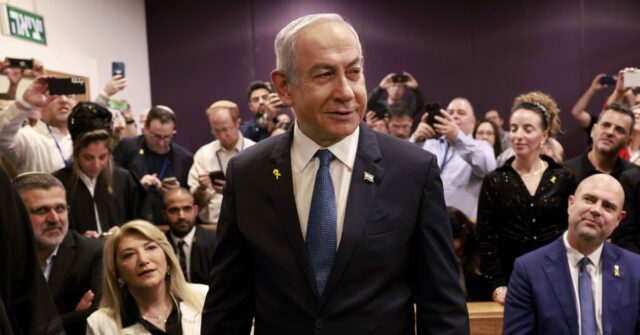Israeli Prime Minister Benjamin Netanyahu was granted a postponement for his court testimony scheduled for Tuesday, raising questions about the reasons for this unexpected change. Netanyahu’s trial revolves around accusations that he manipulated the media for more favorable coverage, a claim he has attempted to discredit through his own testimony. Observers of the trial noted that his defense thus far has seemingly undermined the credibility of the allegations against him, suggesting that the charges lack substance as critics have pointed out. However, the sudden delay in his testimony has sparked speculation about potential underlying motives, ranging from geopolitical maneuvers to critical negotiations involving Israel and Iran.
The postponement coincided with statements from Israel’s Defense Minister, Israel Katz, suggesting that a hostage deal with Hamas is closer than ever. According to reports, Hamas currently holds approximately 100 Israelis captive, with at least half believed to be alive. This situation has been complicated by external pressures, including threats from the incoming U.S. administration under President-elect Donald Trump, who indicated severe consequences if Hamas did not release the hostages. Notably, subsequent regional developments, such as Hezbollah’s setbacks in Lebanon and the decline of Syrian government control, may have influenced Hamas’s flexibility in negotiations.
Speculation also arose regarding a potential military strike on Iran’s nuclear facilities, especially considering Israel’s recent military activities in the region. Reports indicated that Israel may have successfully targeted Iranian air defenses in response to missile threats, along with actions against Syria’s defenses. Such strikes might be indicative of Israel preparing for a more significant escalation targeting Iran’s nuclear capabilities, a crucial concern for Israeli national security. The interplay between domestic legal issues facing Netanyahu and these larger geopolitical concerns adds a complex layer to the current situation.
In the context of Netanyahu’s legal battles, one can observe a significant intersection between domestic politics and international diplomacy. The Prime Minister’s legal troubles could affect public perception of his leadership, particularly as Israel navigates ongoing security challenges. The looming threat from Iran amid a backdrop of regional instability raises the stakes for effective governance, suggesting that Netanyahu’s personal matters do not exist in isolation from national security concerns. This scenario could potentially influence the dynamics of the ongoing trial, making it a pivotal moment for both Netanyahu and Israel.
Moreover, the implications of a potential hostage deal or military action against Iran could reshape regional alliances and the balance of power. If a deal with Hamas materializes, it would signify a shift in the relationship between Israel and Palestinian factions, while a military strike on Iran could provoke significant retaliation and further conflict in the region. These events underscore the complexity of Israeli politics, where domestic issues and international relations are deeply intertwined, leading to unforeseen consequences that could resonate for years to come.
As the situation develops, media coverage and public perception will play a vital role in shaping the narrative around Netanyahu’s trial and the attendant geopolitical developments. The outcome of the trial and any subsequent actions taken by the Israeli government could set critical precedents for how Israel engages with both domestic legal challenges and foreign policy decisions. With a multitude of factors at play, including the influences of foreign powers, ongoing negotiations, and internal political pressures, the weeks ahead promise to be particularly consequential for Netanyahu and the nation as a whole.

